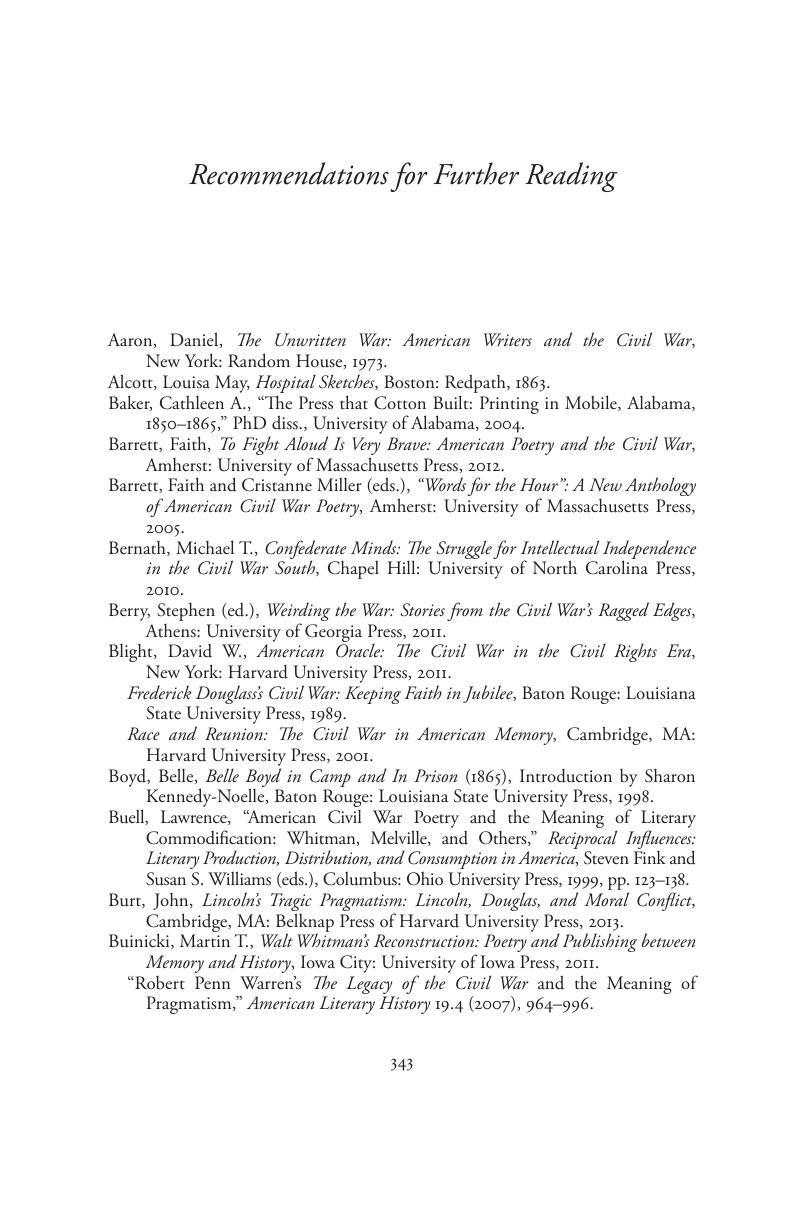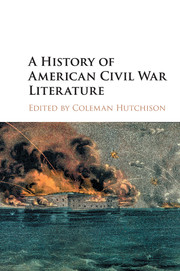Recommendations for Further Reading
Published online by Cambridge University Press: 05 December 2015
Summary

- Type
- Chapter
- Information
- A History of American Civil War Literature , pp. 343 - 348Publisher: Cambridge University PressPrint publication year: 2015



